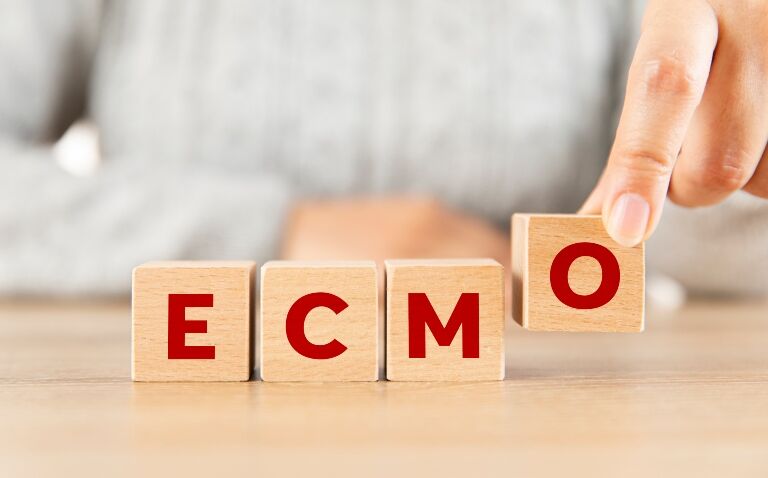Waking critically ill Covid-19 patients for rehabilitation during prolonged extracorporeal membrane oxygenation (ECMO) therapy can improve their prognosis, a new study has found.
Seriously ill Covid-19 patients usually needed a longer period of extracorporeal support than other acute respiratory distress syndrome (ARDS) patients, researchers explained in the journal Annals of the American Thoracic Society.
To understand the factors influencing prognosis and the benefits of a wake-up strategy, researchers conducted a retrospective observational study of 120 patients with Covid-19-related ARDS who required extracorporeal support for more than 28 days from four European high-volume ECMO centres.
Analysing patient outcomes, researchers found 64 people (53.3%) survived decannulation, 62 (51.7%) were alive at hospital discharge and 61 (50.8%) were alive at six-months follow-up.
In a multivariate analysis, younger age was found to be a predictor of hospital survival together with an awake ECMO strategy – defined as the patient being awake, cooperative, and performing rehabilitation and physiotherapy with or without invasive mechanical ventilation at any time during the extracorporeal support.
‘Sedation withdrawal and active rehabilitation are feasible in patients with extracorporeal respiratory support, given that ECMO offers an efficient way of maintaining an adequate gas exchange with the potential of titrating the support according to the patient’s oxygen consumption,’ the researchers wrote.
More than 75% of the cohort of patients receiving the awake ECMO strategy were alive at six months, the researchers said, compared with 41.4% of the most inactive cases.
Patients who were woken during ECMO also required less rehabilitation after discharge, with 68.2% of them requiring discharge to a rehabilitation centre compared with 80.6% of inactive patients.
Senior study author Dr Jordi Riera, director of the adult ECMO program at Vall d’Hebron University Hospital, Spain, and principal investigator of the hospital’s research group on Shock, Organ Dysfunction and Resuscitation, said there were many advantages to the wake-up strategy, including interaction with relatives which offered cognitive and emotional benefits.
‘In addition, if healthcare professionals can communicate with patients, a more accurate diagnosis can be made based on the symptoms they are explaining and, therefore, therapy can be better adjusted,’ said Dr Riera.
Waking patients also minimised some complications, he said, including fewer infections, as patients were able to cough, and less lung damage associated with ventilation.
Although this study was focused on patients with Covid-19, the researchers suggested these results could be generalisable to patients with respiratory dysfunction from other causes.
They also emphasised that despite requiring ECMO for one month, it was possible for these critically ill Covid-19 patients to make a full recovery without the need for oxygen therapy.
At six months, 51 (42.5%) patients were at home, 42 (84.3%) of them without oxygen therapy, the researchers highlighted.
However, longer duration of ECMO support was correlated with need for oxygen therapy at six months.
A cut-off point of 47 ECMO days had a 100% sensitivity and 60% specificity for oxygen therapy at six months, with 100% specificity being found in 97 days.
‘In our view, this cut-off point should be used as a reminder of the possibility of non-recovery and may be used as a trigger for initial contact with an experienced [lung] transplant team for assessment and advice,’ the study authors wrote.
‘However, it must be noted that oxygen therapy on itself is not an indication for lung transplant and that complete recovery has been observed in patients supported with ECMO up to 97 days in this very same cohort.’










